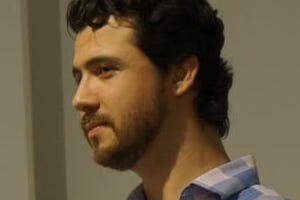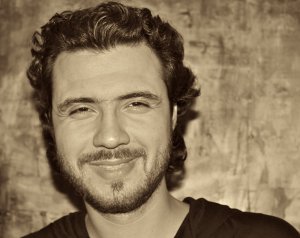São Paulo – Geraldo Adriano Godoy de Campos is not an Arab descendant, but he’s a promoter of Arab cinema, literature, visual arts, music, and particularly knowledge across Brazil and elsewhere. A Brazilian that earned a degree in International Relations and a PhD in Philosophy from the University of São Paulo (USP), three years ago he found a new challenge: Taking his knowledge to another place, Sergipe.

A professor in Political Theory in the course of International Relations of the Federal University of Sergipe, he created with researchers and students back in 2019 a Center for Arab and Islamic Studies (CEAI) in the institution.
“We were surprised with the interest the center sparked. Early on, we brought Palestinian visual artist Abdul Katanani and sociologist Baha Hilo, and we participated in cultural activities of São Cristóvão Festival (FASC), which is highly popular around here. One could say this was the official birth of CEAI. We’re taking a step further now, as it will now become the International Center for Arab and Islamic Studies, thus allowing a greater interchange with foreign countries, a new framework within the university”, Campos said about the possibilities the new phase promises.
Opportunities in other regions
The most recent brainchild of Campos, CEAI opens a new window for discussion and studies in the Northeast region of Brazilon the Arab society. “In fact, there’re many things being done in Rio and São Paulo. Here in the Northeast region, there’s so much, too, but perhaps CEAI plays this role of bringing together studies and researches, this knowledge is out there and is still fuzzy,” he says.
Here’s more on this: Book club promotes Arab titles in Brazil
Furthermore, the center holds another activity that entwines with the purposes of Campos: Approaching schools and bringing the diversity of the Arab culture to young students. “The challenge posed here is that, while being a center for high studies, we’re also concerned with the education of the youth on the Middle East. It’s a work towards melting prejudices, bringing the university research to teens,” he says.
But what led the researcher who first was interested in Latin American migration and samba delve into the Arab world?
Childhood memories
“My father was from Arceburgo, a town in Minas Gerais with a large Italian and Arab colony. My most vivid childhood memories go back to my family enjoying Arab dishes in the homes of my parents’ friends. A few years later, around 2004 or 2005, I – who was always interested in the culture within the context of International Relations – eventually got interested in Arabic, so I went on and studied Arabic and started participating in meetings of Icarabe (Institute of Arab Culture in São Paulo). I remember hearing the explanations of professor Aziz Ab’Saber (a geographer who died in 2012) and noting what he said. We had very constructive discussions in Icarabe,” he recalls.

Campos then broadened his studies to authors like Edward Said, filmmakers and visual artists as well as other areas of culture, which has always been one focus of his studies and interests. At the same time, he kept giving Sociology classes in the International Relations course at Superior School of Advertising and Marketing (ESPM), which he left only in 2018 to move to Aracaju.
Before leaving for the Northeast region, Adriano participated in key events for the spread of the Arab culture in São Paulo. In 2015, he was one of the creators of the short-film competition “Arabs and 25 de Março” on the region of Rua 25 de Março, a street in São Paulo; the competition was held by the Arab Brazilian Chamber of Commerce (ABCC). Together with Icarabe, he was also an organizer and curator of Arab World Film Festival, which has featured filmmakers Elia Suleiman and Kamal Aljafari.
A treasure to share
In his immersions into the Arab culture, Campos read books and articles, studied, researched, watched movies, and visited Arab countries to research contemporary art. Understood a universe full of unique traits, singular peoples, woes and talents. “I cannot envision a life where I’m not involved in this culture, these numberless peoples. It’s so rich, so powerful, deep and sophisticated… you find a treasure and want to share it with the world.”
A PhD on Palestinian cinema and art from the University of São Paulo, Campos makes sure to study and promote all forms of Arab art expressions through culture in International Relations. He doesn’t agree, for example, with the idea there’s only “one Arab world”, single and separated form other existential issues that afflict contemporary society.
“I don’t have to be an Arab descendant to be moved, as Arab art talks with the contemporary worlds, speaks of the dissolution of social ties, refugees, conflicts. I cannot watch an Arab film and then close this door as if it was something isolated, because it is not. We must get out of identity-based drawers.”
*Special report by Marcos Carrieri for ANBA
Translated by Guilherme Miranda




